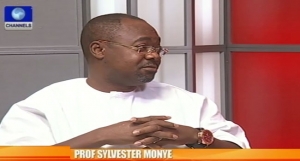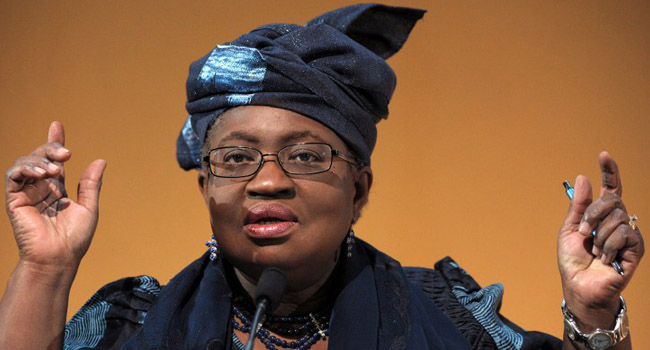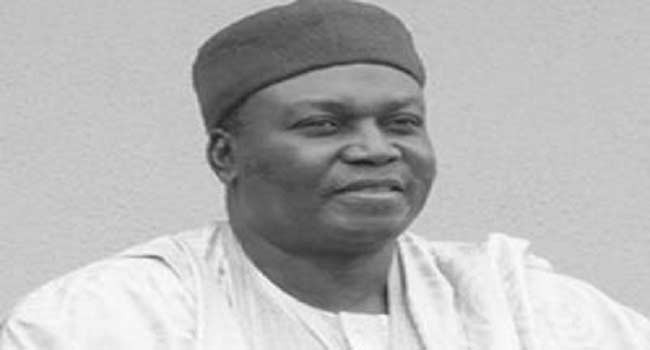
Giving his opinion on Monday about the claims that the country’s treasury was empty, a former Senior Adviser to the President on Performance and Evaluation, Professor Sylvester Monye, urged Nigerians to hold Governors accountable for the non-payment of salaries to workers.
Professor Monye said that the Finance Minister had, when revenue allocation dropped,warned the governors to give priority to the payment of salaries, which according to him, was ignored by the Governors.
“When the price of crude started falling down, the former Minister of Finance called a meeting of the Commissioner of Finance in states to advise that salaries should be made first line charge because revenue was coming down.
“No state governor has no business talking about non-payment of salaries because they continued to receive money from the Federation Account,” he said.
In defence to the non-payment of salaries to some workers in about 18 out of 36 states, the governors said they had used part of their allocation on projects that should have been carried out by the Federal Government in their various States.
At a meeting with President Muhammadu Buhari to discuss the salary crisis, the Governors requested that the Federal Government should pay back monies spent on those projects.
However, Professor Monye insisted that the Governors had misplaced priorities, insisting that Nigerians should question why they could not pay.
“If they so choose to do contracts, as they have done, it is their decision.
“Nigerians ought to ask governors what they did with their money. It is the civic responsibility of all Nigerians.
“Did the governors have the authority of the Federal Government to work on the roads, as they claimed?
“The Federal Government never said you should not intervene but you have to discuss with the Federal Government and follow due process,” he insisted.
As part of assurance to the State governments, the Federal Government told the Governors at the meeting that it would look at the projects to know if they followed due process and make refunds.
Weeks after President Buhari took over office, he said that his administration met a virtually empty treasury that could affect the performance of his government within the first 100 days.
On the Buhari’s administration’s claims, Professor Monye said that the new administration was still using the language of opposition, which was completely different from the language of government.
He said the claim was not true.
“In government everything you say has fundamental implications.
“Parties that came together to form the APC have been very effective and they were successful of prosecuting their political campaign to the point of winning the election.
“But now that they are in government, whatever they say, the language must change to language of government.
“When you say certain fundamental things like; empty treasury, the country is broke and the economy is run aground, you are creating bigger problem for yourself because in my own position it is not true.
“It is not an issue of meeting an empty treasury. The fundamental is, are you supposed to meet anything in the treasury?” He questioned.
“Patriotic Illegality”
Explaining the circumstance that could have led to President Buhari’s statement, Professor Monye said that, as contained in the Constitution, the treasury was expected to be empty.
According to him, the Constitution of Nigeria stipulates that monies gotten from crude oil sales should be shared between the Federal and State Governments.
He, however, further explained that a former President, Olusegun Obasanjo, during his tenure, saw the need for excess amount earned from sales of crude to be saved, a situation that resulted in the establishment of an Excess Crude Account.
Professor Monye described the account as a “patriotic illegality”, as he explained further that Governors in Nigeria had gone to court to request that the money in the account should be shared, as it was unconstitutional.
“The constitution says that any money that is made in the country from all revenue sources must be put into the Federation Account and be shared between the states and the Federal Government.
“What is saved in the Excess Crude Account is the excess from what is earned and the current oil bench mark as stipulated in the budget.
“How can you be talking about an empty treasury, where there is a court case that is saying that the money in the Excess Crude Account should be shared?” Professor Monye further questioned.
He stressed the need for a fundamental reform of the Constitution to make provision for the Excess Crude Account which he said was necessary for any government or nation that wanted economic stability.
“What we need to do is to compel the government to save a certain percentage of what it receives from the Federation account,” he added.



